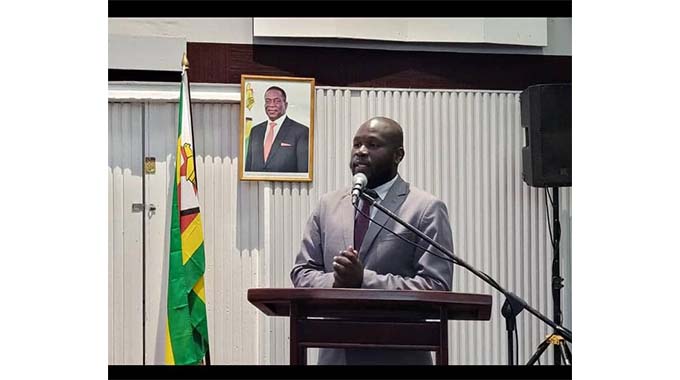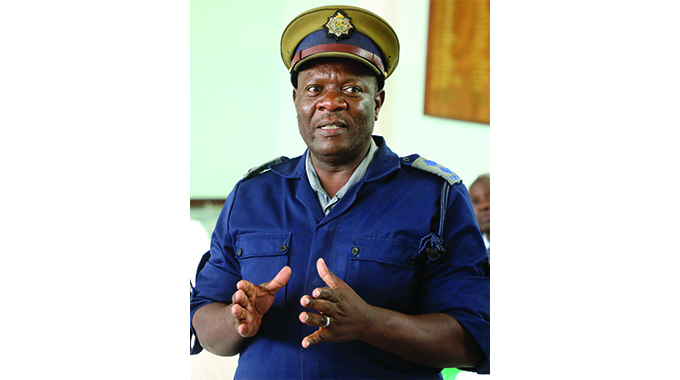Misconceptions about homeless people

Rejoyce Sibanda, [email protected]
THERE are a lot of misconceptions, views or opinions regarding people living on the streets which have tarnished the reality of how some of these people found themselves establishing homes on the streets.
Of course, while there is some element of truth in some opinions, most of them lean on the negative side.
Most people have concluded that people living on the streets are all mentally challenged but that is not true because even if the streets house mentally challenged people, there are some who are mentally stable and live on the streets because of one reason or the other.
The streets do not house people of a specific age group. They are filled with various homeless people of varying age groups and these are both the young and the old.
Society has gazed upon people living on the streets with a negative eye. It sees them as violent, strange, thieves and dirty people that for some reason do not deserve to breathe or gallivant the streets.
Some of these homeless people find themselves lost, without a home, with no relatives and they accept it as it is.
With streets becoming their homes, the main goal to be achieved each day is being able to find the next meal either from the dustbins or at the mercy of generous people passing by.
The sad reality that faces people living on the streets is that they are affected by different types of weather conditions such as the cold or rain because they would not be having shelter, clothes or blankets to keep them warm.
This is the reason why a lot of homeless people are found in places such as tunnels and corners during winter.
Some are even found trying to make small fires at street corners and use cardboard boxes as their beds and blankets.
Sharing the same realities of fate is what establishes bonds and friendships among people living on the streets.
Unlike people who have places to stay that worry about petty and unnecessary things such as what to wear, the type of food they want to cook for the day and where to visit, the homeless only have to worry about getting the meal for the day and shelter where they are going to spend the night.
People living on the streets spend most of their time trying to improve their lives just like everyone else.
Bulawayo’s Richmond dumpsite popularly known as Ngozi Mine accommodates a lot of homeless people of all age groups trying to make ends meet.
Most of the homeless people in that place survive on picking litter in bulk and selling it to recycling companies where they get some money to keep them going or buy food for the day.
However, in such places, there is a lot of violence as these people scramble for the little resources available which sometimes leads to heated conflicts and gang fights.
Older people living on the streets also have a tendency of stealing items such as blankets, clothes and food among others from the younger ones. They even go the extra mile of abusing them.
Young girls living on the streets are subjected to abuse and rape by older guys who are also homeless because there are no measures in place to protect them.
There are however some people who have taken it upon themselves to lend a helping hand to the homeless.
For example, since January last year, a Bulawayo-based Royal Priesthood Solution Ministries leader, Prophet Joshua Zulu, has been assisting the homeless in the city by providing them with free meals.
Meals are delivered every Friday at around 1.30PM at Centenary Park where about 30 regular homeless people including children and adults receive free lunch and refreshments.
Prophet Zulu said so far, the feeding programme has helped many youngsters to find their way back to the “love of Christ” as some of them were now going to church while others were getting jobs.
He said that based on available financial support from church coffers, the homeless are offered food such as isitshwala and beef, rice and chicken or sometimes sandwiches and drinks.
The prophet said that on special days like the prophet or prophetess’s birthday, a braai is done for them.
The homeless have also received help from Mrs Sanelisiwe Chipomho (47) from Bulawayo who runs an organisation called Usizo Foundation Trust that feeds the homeless every Sunday in the central business district (CBD).
Mrs Chipomho told Chronicle that she doesn’t seek to gain anything from her work but instead wants to give back to the community.
“I realised that most people living on the streets were dependent on the food that we throw away and so when the Covid-19 lockdowns were enforced, I just imagined their struggles in trying to get food daily as most people were no longer getting into town. I then started cooking meals for them,” said Mrs Chipomho.
She said she has since discovered that not everyone living on the streets is delinquent, violent, uneducated or “useless” as some may think.
Mrs Chipomho said her wish was to get a sponsor who would help her buy land and build a vocational centre for the homeless as she noticed that some of them are very talented.
Chronicle stumbled upon one of the people living on the streets who refused to give his identity because of fear of exposing his family and where he comes from.
The man said he has been living on the streets since he was a teenager and now, he is reaching his mid-30s.
“My parents passed on when I was just two years old and I was brought up by my grandmother who showered me with so much love and took good care of me. However, when I was about to finish my primary education, she passed on and I was forced to go and live with my aunt and life became very hard for me,” he said.
He said his aunt verbally, physically, and sexually abused him but when he reported the matter he was dismissed as someone who was ungrateful for being well taken care of.
The homeless man, after shedding a few tears, said what still pains him is that no one believed him and this continued for a while.
“I could not bear the abuse I was getting from my aunt and so I thought since I was an orphan and there was no one else interested in taking care of me, it was better for me to live on the streets because I also did not manage to enrol for secondary education,” he said.
The homeless man said he ran away from his aunt’s home and has been living on the streets since then.
He said he has found a more peaceful life on the streets than the abuse he was exposed to because he now has a corner where he sleeps and keeps some of his things. He said he only has to worry about finding the next penny or meal.
“Losing both parents at a very young age and failing to find that one person to take care of you is very painful. From the way people look at me, they think I am mentally disturbed or something but I have come to terms with the reality,” he said.
He added that none of his relatives know where he is and he has no intention of going back home as he is now in the streets and that is where he will wait for the fate of death.
Meanwhile, Government is conducting a survey in the city centre to identify children living on the streets as part of efforts to address their vulnerability.
In an interview during the third phase comprehensive review of the National Action Plan for orphans and other vulnerable children last month, the director of social development in the Ministry of Public Service, Labour and Social Welfare, Mr Tawanda Zimhunga said the survey of children living on the streets was last done in 2015 and numbers of such cases continue to increase daily.
He said at the moment, the Government is conducting a survey in the city centre to identify children living on the streets as part of efforts to address their vulnerability.
“We work with other stakeholders and from each province, and there is a provincial street children steering committee established so that they steer all activities relating to children living on the streets.
Government departments, NGOs and civil society organisations including traditional and religious leaders, work together to ensure that they provide services to children living and working on the streets,” said Mr Zimhunga.
He said the National Action Plan for orphans and vulnerable children will ensure that the welfare of the children is safeguarded through the communities and extended families.
According to a report from the ministry published in 2017, Zimbabwe had an estimated 4 701 children living and working on the streets of the country’s major cities which include Harare, Bulawayo, Gweru and Mutare among other urban centres. – @ReeSibanda








Comments